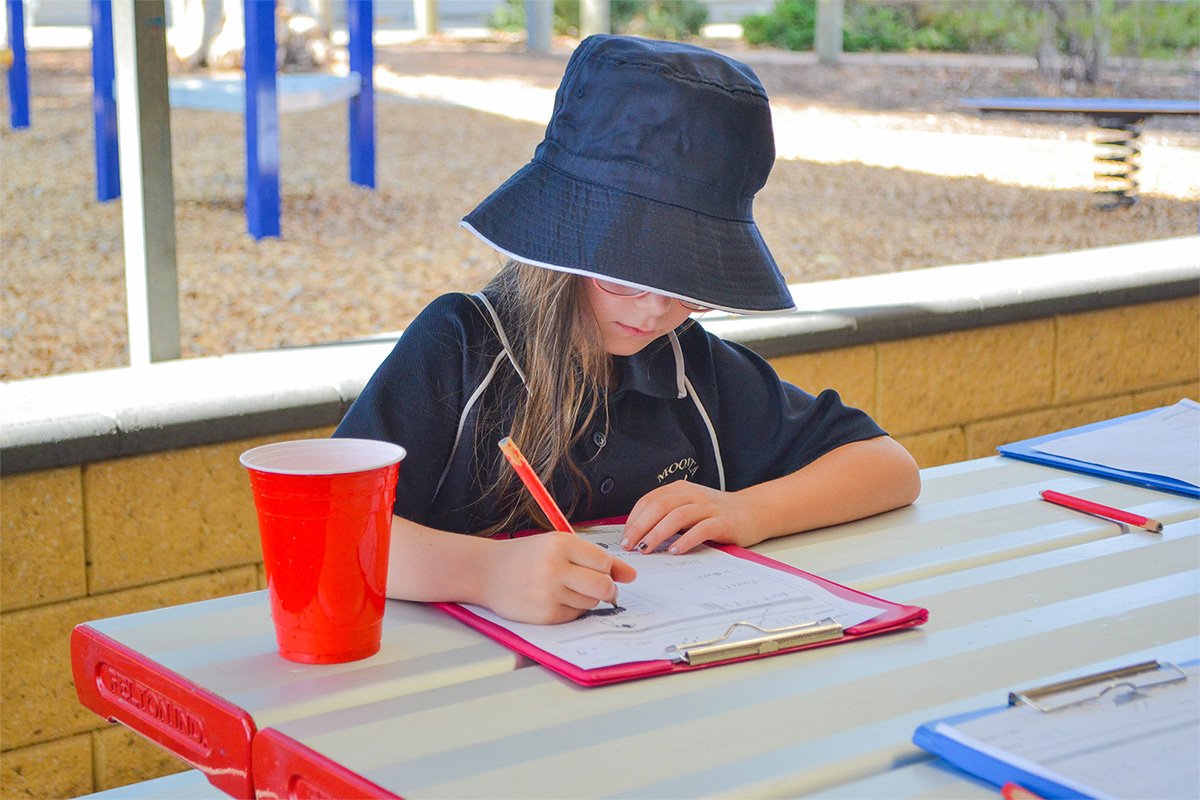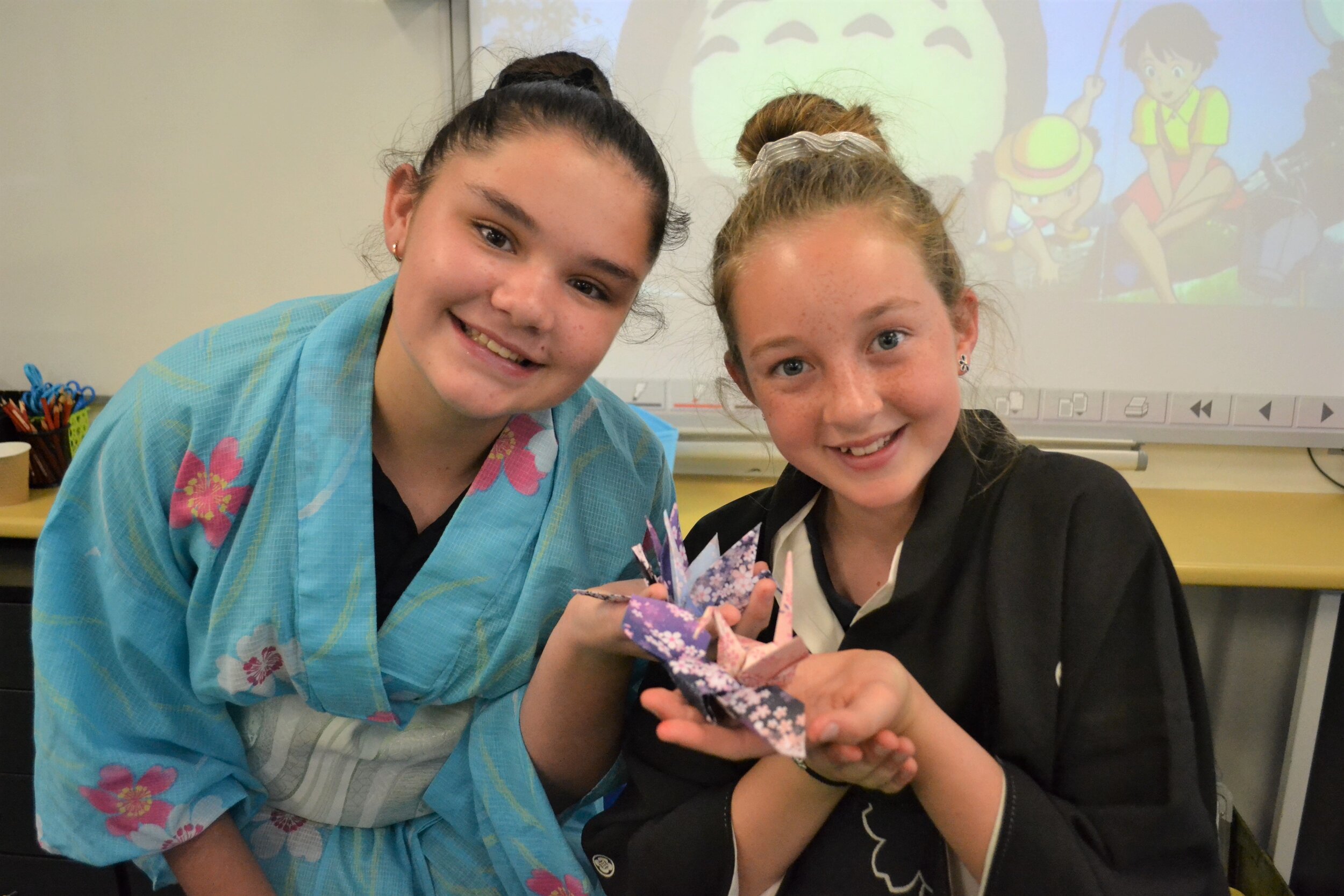
Curriculum
Primary School
Primary (Reception-Year 6)
Our primary school cohort at Moonta Area School consists of Reception to Year 6 classes, including our Wildu Special Options class.
We partner closely with Moonta Kindergarten to ensure a smooth and happy transition from kindy to school. Kindy students visit the Moonta Community Library, attend special events at school, and visit our Early Years classrooms. Our primary students regularly visit Kindy as well. Our formal transition program commences in mid-Term 1 for mid-year School Starters, and mid-Term 3 for next year School Starters.
Our students access all areas of the Australian Curriculum from Reception, including a range of specialist learning areas such as Performing Arts, Health and Physical Education, Visual Arts and Japanese. All students have access to iPads and other technology to support their learning, including interactive whiteboards, Beebots, Bolleys and 3D printers. All students have regular access to the Moonta Community Library.
Throughout their Primary Years, students have the opportunity to develop formal leadership skills as Class or Sub-school representatives on the Student Leadership Group, and as Sub-school House Captains. In Years 5 and 6, students may train as Crossing Monitors.
Reception - Year 2 Classes
Our Early Years/Junior Primary/Reception – Year 2 students are busy little learners who become more confident and independent each day. Teachers design learning to include explicit direct instruction as well as group work and investigative play. Learning often happens in our ever-developing outdoor spaces such as the Bush Bites Garden and Decks which allow year-round outdoor learning.
A typical day in EY/JP/R-2 includes
Morning welcome, including Acknowledgement of Country and our Positive Behaviour for Learning focus
Literacy learning including Explicit Direct Instruction in Phonics as well as Reading, Writing, Speaking and Listening
Numeracy learning including Big Ideas in Number, Maths Chats and Conceptual lessons
Investigations: intentional and integrated learning activities to encourage the development of oral language, social skills, creativity and curiosity. These lessons often include interaction with the wider community.
Specialist lessons
Supervised eating time and play breaks, often supported by teaching assistants who promote co-operative and active play
Interoception breaks to practise self-regulation skills and promote active movement
Intervention sessions in Literacy, Numeracy and Social and Emotional Development
Regular interaction with Kindy, Primary and Secondary classes develops an ongoing sense of belonging to Moonta Area School
Years 3-6 Classes
Our Year 3 – 6 students continue to develop independence and leadership as they move through their primary years. Teachers design learning to include consistent delivery of explicit direct instruction as well as independent and collaborative learning. Students access the variety of technologies and specialist learning areas an Area School can provide.
A typical day in Primary/3-6 includes
Morning welcome including Acknowledgement of Country and our Positive Behaviour for Learning focus
Literacy learning including Explicit Direct Instruction in Spelling and Morphology as well as Reading, Writing, Speaking and Listening
Numeracy Learning including conceptual lessons in all areas of the Mathematics Curriculum
Specialist lessons
Interoception breaks to practise self regulation skills and promote active movement
Supervised eating time and play breaks, often supported by teaching assistants who promote co-operative and active play
Integrated or Project based learning which over the course of a semester or year includes Science, Design and Technology, History and Geography. The Solution Fluency process is often used to support students to develop curiosity and skills in questioning, researching and problem solving. These lessons often include interaction with the wider community.
Extra-curricular opportunities such as Choir, Instrumental Music, and participation in sporting competitions in the local and wider community
Primary students interact with Kindy, Junior Primary and Secondary classes through student leadership, special events and regular Buddy Class programs.
In Year 6, the formal transition to Middle School begins and Year 6 and Middle School teachers collaborate to ensure our Year 6s are ready to confidently begin their secondary schooling at Moonta Area School









